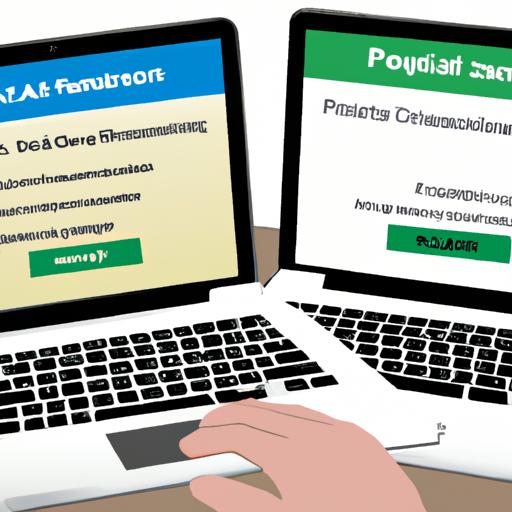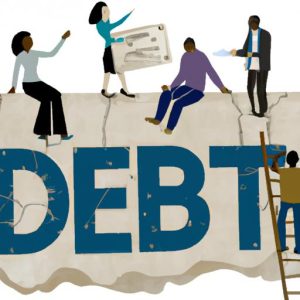Personal loans and credit card debt are common financial tools that individuals use to manage their expenses. A personal loan is a fixed amount borrowed from a financial institution that is typically repaid in monthly installments with a set interest rate. On the other hand, credit card debt refers to the amount owed on a credit card account, which can vary each month based on spending and repayment habits.
Understanding the distinctions between personal loans and credit card debt is crucial for making informed financial decisions. By gaining insight into the unique features of each option, you can determine which best aligns with your needs and goals. Let’s delve deeper into the specifics of personal loan vs credit card debt to equip you with the knowledge needed to navigate these financial avenues effectively.
Personal Loan vs Credit Card Debt: Interest Rates
Understanding Interest Rates Disparities
Interest rates play a pivotal role in distinguishing between personal loans and credit card debt. Personal loans typically offer fixed interest rates, meaning the rate remains constant throughout the loan term. In contrast, credit card debt often carries variable interest rates, which can fluctuate based on market conditions or individual creditworthiness. This fundamental difference influences the predictability of monthly payments and the total interest paid over time.
Evaluating the Cost of Borrowing
The impact of interest rates extends beyond monthly payments, affecting the overall cost of borrowing. Higher interest rates on credit card debt can lead to substantial long-term expenses, especially if only minimum payments are made. In comparison, personal loans with lower fixed rates may offer more cost-effective borrowing solutions, enabling borrowers to plan and budget effectively. Understanding how interest rates influence the affordability and sustainability of debt repayment is essential in making informed financial decisions.
Personal Loan vs Credit Card Debt: Repayment Terms
Comparing Repayment Terms
When it comes to repayment terms, personal loans and credit card debt differ significantly. Personal loans typically have fixed monthly payments over a predetermined period, making it easier to budget and plan for repayment. In contrast, credit card debt offers more flexibility in repayment, allowing you to pay a minimum amount each month or the full balance, depending on your financial situation.
Factors to Consider
Choosing between personal loans and credit card debt requires careful consideration of various factors, including your financial stability, budgeting preferences, and overall debt management strategy. Assessing your ability to make consistent monthly payments and understanding the impact of interest rates on the total amount repaid can guide you in selecting the option that aligns best with your financial goals.
Personal Loan vs Credit Card Debt: Impact on Credit Score
Understanding the Impact
When it comes to personal loans and credit card debt, both can have varying effects on your credit score. Personal loans are installment loans, meaning you borrow a fixed amount and repay it over a predetermined period. Timely payments on personal loans can positively impact your credit score, showcasing responsible borrowing behavior.
In contrast, credit card debt is revolving credit, where your balance fluctuates based on spending and payments. High credit card balances relative to your credit limit can negatively impact your credit score, as it may indicate financial strain or a high debt-to-income ratio.
Tips for Managing Debt
To maintain a healthy credit score when juggling personal loans and credit card debt, it’s essential to make timely payments on all accounts. Keeping credit card balances low relative to your credit limit can also positively impact your credit score. Additionally, monitoring your credit report regularly for inaccuracies and addressing any errors promptly can help safeguard your credit score. By understanding how personal loans and credit card debt can influence your credit score, you can make informed decisions to protect and enhance your financial health.
Personal Loan vs Credit Card Debt: Borrowing Limits
Understanding Borrowing Limits
When it comes to borrowing limits, personal loans and credit card debt differ significantly. Personal loans typically offer a fixed amount that you can borrow, which is determined by factors such as your credit score, income, and financial history. This fixed amount provides clarity on the total loan value and repayment terms, allowing you to plan your finances accordingly.
On the other hand, credit card debt comes with a revolving credit limit that can vary based on your creditworthiness and the issuer’s policies. This revolving nature means that you can continuously borrow up to a certain limit as long as you make timely payments. However, this flexibility can also lead to the temptation to overspend and accumulate high-interest debt if not managed effectively.
Considerations for Different Financial Needs
When deciding between a personal loan and credit card debt, it’s essential to consider your specific financial needs. If you require a lump sum for a major expense such as home renovations or debt consolidation, a personal loan with a fixed borrowing limit may be more suitable. On the other hand, if you prefer the flexibility of ongoing access to funds for everyday expenses or emergencies, credit card debt with a revolving credit limit could be a better option.
Understanding your borrowing limits and financial goals is key to choosing the right borrowing option that aligns with your needs and helps you achieve your financial objectives. By evaluating the borrowing limits of personal loans and credit card debt, you can make an informed decision that sets you on the path to financial stability.
Conclusion
In conclusion, the comparison between personal loans and credit card debt reveals distinct characteristics that can influence your financial journey. By weighing factors such as interest rates, repayment terms, impact on credit score, and borrowing limits, you can make an informed decision that suits your financial needs. Remember, managing debt responsibly is key to maintaining a healthy financial outlook and achieving your long-term goals.
Whether you opt for a personal loan or credit card debt, it’s essential to stay informed, plan diligently, and monitor your financial health regularly. By understanding the nuances of each option and aligning them with your personal circumstances, you can navigate the world of borrowing with confidence and clarity. Make wise choices, stay proactive in managing your finances, and embark on a path towards financial stability and success.


